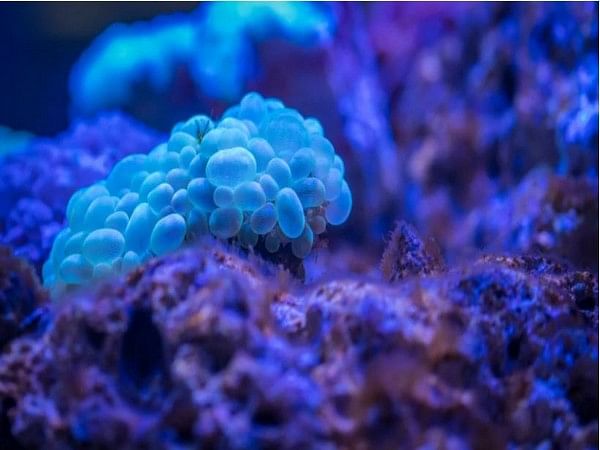Newcastle upon Tyne (England) [UK], April 29 (ANI): According to a new research, scientists discovered a new species of plastic-loving bacteria that cling to plastics in the deep sea which could allow them to ‘hitchhike’ across the ocean.
The findings of the research were published in the journal ‘Environmental Pollution’, a team led by researchers at Newcastle University.
The team showed for the first time that these deep-sea, plastic loving bacteria make up only 1 per cent of the total bacterial community and found that these bacteria only stick to plastic and not the non-plastic control of stone.
The research highlights these bacteria may be able to ‘hitchhike’ across the deep sea by attaching to plastic, enhancing microbial connectivity across seemingly isolated environments.
To uncover these mysteries of the deep-sea ‘plastisphere’, the team used a deep-sea ‘lander’ in the North-East Atlantic to deliberately sink two types of plastic, polyurethane and polystyrene, in the deep (1800m) and then recover the material to reveal a group of plastic loving bacteria.
This method helps tackle the issue of how plastics and subsequently, our understanding of the ‘plastisphere’ (microbial community attached to plastic) are sampled in the environment to provide consistent results.
The scientists observed a mix of diverse and extreme living bacteria, including Calorithrix, which is also found in deep-sea hydrothermal vent systems and Spirosoma, which has been isolated from the Arctic permafrost.
Other bacteria included the Marine Methylotrophic Group 3 – a group of bacteria isolated from deep-sea methane seeps, and Aliivibrio, a pathogen that has negatively affected the fish farming industry, highlighting a growing concern for the presence of plastic in the ocean.
In their most recent work, they have also found a strain originally isolated from RMS Titanic named Halomonas titanicae. While the rust-eating microbe was originally found on the shipwreck, the researchers have now shown it also loves to stick to plastic and is capable of low crystallinity plastic degradation.
The research was led by Max Kelly, a PhD student at Newcastle University’s School of Natural and Environmental Sciences.
He said: “The deep sea is the largest ecosystem on earth and likely a final sink for the vast majority of plastic that enters the marine environment, but it is a chaging place to study. Combining deep-sea experts, engineers, and marine microbiolllenogists, our team is helping to elucidate the bacterial community that can to stick to plastic to reveal the final fate of deep-sea plastic.”
Microplastics (fragments with a diameter smaller than 5mm) make up 90 per cent of the plastic debris found at the ocean surface and the amount of plastic entering our ocean is significantly larger than the estimates of floating plastic on the surface of the ocean.
Although the plastic loving bacteria found in the study here represent a small fraction of the community colonising plastic, they highlight the emerging ecological impacts of plastic pollution in the environment. (ANI)
This report is auto-generated from ANI news service. ThePrint holds no responsibility for its content.



